The Art of Trolling Is Very Simple the First
The Fine art of Trolling: A Philosophical History of Rhetoric

The history of trolling is a history of rhetoric. This particular history of rhetoric is steeped in philosophy and mythology, spanning across cultures, continents, and time. Although trolling principally correlates with the rising popularity of digital spaces native to social media, blogs, and comment sections on websites, trolling equally a class of rhetoric predates the cyberspace entirely. Merely this does non mean that digital spaces have not enabled a new kind of trolling to evolve within the advent of the internet. The goal of this investigation is not to provide a definitive history of trolling or its involvement inside specific subsets of internet trolls, e.g. the Alt-Right Movement. Instead, I hateful this equally a thoughtful meditation upon how the phenomena we understand equally "trolling" has emerged inside multiple cultures and has transformed within contempo memory. Looking at these origins, we may glean that although trolling has since gathered dubious and often divisive connotations, its origins stalk from "heroic" traditions and historic figureheads in academia.
Trolling Defined
Trolling itself may be understood as any of the post-obit:
- To "make a deliberately offensive or provocative online post with the aim of upsetting someone or eliciting an angry response from them" (Oxford Living Dictionary).
- "The art of deliberately, cleverly, and secretly pissing people off, usually via the net, using dialogue… The about essential part of trolling is convincing your victim that either a) truly believe in what you lot are saying, no affair how outrageous, or b) requite your victim malicious instructions, under the guise of assist." (Urban Dictionary).
- To sow "discord on the Internet by starting arguments or upsetting people, past posting inflammatory, extraneous, or off-topic letters in an online community (such as a newsgroup, forum, conversation room, or blog) with the intent of provoking readers into an emotional response, or of otherwise disrupting normal, on-topic word, oft for the troll's amusement" (Wikipedia).
AlthoughUrban Dictionary andWikipedia may arguably be less scholarly sources than the Oxford Living Lexicon, granted that trolling as a discussion used in this way is a more recent phenomenon, we must turn to sources likeUrban Lexicon andWikipedia until the more "academy appropriate" tracts produces more thorough understandings of "the fine art" of trolling. Each definition provided higher up highlights a dissimilar aspect of a like phenomena, although these definitions all identify that phenomena within a digital space. For our purposes here, as implied within the abbreviated history of rhetoric, trolling is non limited to digital spaces.
The Origins of Rhetoric
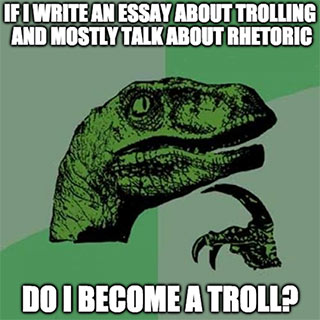
If each act of individual trolling is an act of rhetoric in action, then what is rhetoric itself? Rhetoric is a term frequently used in popular culture as a way to dismiss a person's words/thoughts. Usually this dismissal involves calling the person in question "biased" or "manipulative," suggesting that there isn't whatsoever "substance" informing an author/speaker'southward claims. Instead, the author/speaker merely uses "empty rhetoric." While this understanding of rhetoric is non without a historical grounding,this understanding is somewhat misinformative. Rhetoric is far more circuitous than this, and it is for this reason that I provide the following abbreviated history of the subject before detailing contemporary definitions of trolling. This history illustrates that trolling can exist traced back at least to Ancient Greece.
Please note my history hither is largely concerned with a Western tradition as that is where my expertise lies, but I find information technology pertinent to stress that there are other traditions of rhetoric, other rhetorics, beyond what I write here. For those interested in further pursuing a larger investigation into the History of Rhetoric, Patricia Bizzell and Bruce Herzberg have a mammoth tome called The Rhetorical Tradition: From Classical Times to Present.
Rhetoric'south definition has changed largely over the form of fourth dimension within the Western tradition, beginning with its start appearance inGorgias, its revisitation in Plato'southwardPhaedrus, and carrying onward into the 21st century, which has expanded rhetoric'due south focuses to include digital, inability, and intersectional rhetorics. In its earliest use in Gorgias,or On Rhetoric, Plato uses rhetoric as a way to dismiss a group of traveling teachers known as the Sophists, nearly specifically the Sophist who appears inside the dialogue and puts up with berating from Socrates, Gorgias himself. Gorgias, Protagoras, Aspasia, and other Sophists represent a tradition of skeptical thought that emphasizes the importance of question request, the relative nature of personal experiences in relation to perception (as opposed to thinking in broad, universal statements), and challenging cultural norms associated with hegemony.
The Sophists are the first rhetoricians within the Western tradition, but they exercise not necessarily use the word "rhetoric" themselves to depict what they do, even though Gorgias uses it himself inside the Platonic dialogue that shares his proper name (88). Instead that discussion comes from either Plato or Socrates, who utilize the word to the Sophists as a fashion to discredit them. (The reason why it is unclear whether Plato or Socrates invented the term stems partially from the fact that every piece of Socrates's writing no longer exists; what we know of Socrates is principally in the writings of other authors, principally Plato.) These Philosophers perceived the Sophists as deceivers, both of the populace and of their students, with the master mission of the Sophists to teach their students how to lie well (Bizzell and Herzberg 80).
Considering of this, Plato and Socrates presents rhetoric as immoral, the antonym of their noble philosophy that is dedicated to the pursuit of knowledge based inside absolute truth. This immorality, these philosophers seem to believe, would too be the undoing of Athenian democracy. Socrates even goes every bit far inside Gorgias to claim that not only will rhetoric disrupt justice and Sophistry volition disrupt legislation (98), he argues that rhetoric can condemn one's soul to Tartarus, an Ancient Greek counterpart alike to the Christian Hell.
In a word, whatever sort of bodily appearance a man had acquired in life, that is manifest also after his death either wholly or in the main for some fourth dimension. And so it seems to me that the same is the case with the soul as well… when a human being's soul is stripped bare of the torso, all of its natural gifts, and the experiences added to that soul as a issue of his various pursuits, are manifest in it. So when they go far in presence of their estimate… Rhadamanthus sets before him and surveys the soul of each… he perceives the utter unhealthiness of his soul, striped all over with the scourge, and a mass of wounds, the piece of work of perjuries and injustice; where every act has left its smirch upon his soul, where all is awry through falsehood and imposture, where all is awry through falsehood and imposture… Beholding this he [Rhadamanthus] sends information technology [the soul] away in dishonor straight to the place of custody, where on its arrival it is to endure sufferings that are fitting. (Gorgias136-137)
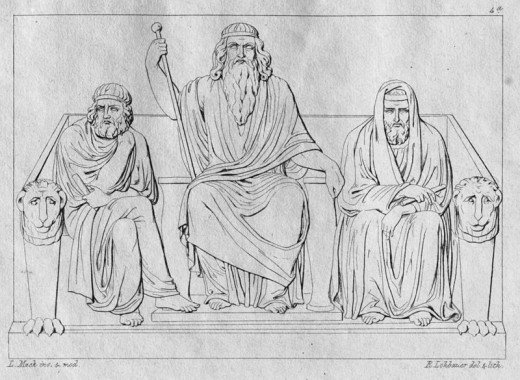
(Source)
Considering the Sophists and Philosophers operated competing schools inside Classical Athens, at that place is probable a political undertone to Plato'southward and Socrates's utilize of rhetoric within this piece, especially in regards to its ability to condemn one'due south soul to a place of torture, making Gorgias an artifact of the ancient world that depicts a possible early form of "trolling." Based on how Plato depicts Socrates within this dialogue, having him outwit and shut downward both Gorgias and his pupils, what the reader encounters is not a discussion amongst conversation partners contributing their thoughts equally and productively, only a fairly one-sided discussion where Socrates sets a serial of verbal and logical traps to make his opposition incapable of responding in a reasonable mode. Socrates even goes as far as to set a double standard, telling Gorgias the same time that he is request the Sophist to engage inside a dialogue that if he is to speak with Socrates, he can but respond using the briefest responses (88). Meanwhile, Socrates throughout the dialogue uses lengthy responses- some fifty-fifty terminal for multiple pages.
If we do accept this as an ancient example of trolling, this means that trolling traces back to the inception of rhetoric and could possible accompany the term throughout the entirety of its history, albeit as I make clear further on, within the Western tradition, at least, at that place is a moment where trolling seems to diverge from rhetoric as rhetoric began to acquire new applications.
While Plato and Socrates may originally taught their pupils that manipulative rhetoric is a form of evil, Plato later on revises this opinion inside another dialogue,Phaedrus.As a dialogue,Phaedrusis far more cosmological and mythological thanGorgias. Here Socrates invokes imagery of Gods and Goddesses, forth with souls riding upon flying chariots, as ways of exploring the causes of madness and types of dear. Socrates uses this imagery to contrary his position from Gorgias, saying at present that rhetoric can be proficient and that the rhetoric that leads people towards the divine truth is the purest rhetoric. Socrates also posits an incredibly complex system of reincarnation that places human beings into a 9-layered caste system (150). At the top of this hierarchy stands the Philosophers, for their dearest of truth elevates their souls into the highest of beings (151). Towards the bottom at this hierarchy, ranking in 8th place, are the Sophists, who are considered equal to Demagogues and just slightly better than the Tyrants who occupy the 9th level (150). Rhetoric has the ability to raise or lower the rankings of souls upon reincarnation, depending on how well that rhetoric is oriented towards the love of truth.
While trolling may non seem to exist every bit immediately credible withinPhaedrus, every bit information technology may appear withinGorgias, at that place are at least three possible ways that this dialogue tin relate to this particular rhetorical fine art. Because the context of how Plato sets the dialogue withinPhaedrus upwardly betwixt Socrates and a young man named Phaedrus that Socrates appears to be enamored by, the purpose of this dialogue is securely deceptive, using this meditation upon purity and love as a possible way to seduce Phaedrus without Socrates necessarily having a sincere desire to care for him across immediate pleasure. To a bottom extent, if we read this substitution as reflective of Socrates 18-carat feelings, then we may also read this as reinforcing the thought that theGorgias dialogueisan deed of trolling, that if Socrates tin have rhetoric as he does here, so his dialogue with Gorgias and his students stems from a desire to exploit Sophists for his own enjoyment. A 3rd possibility lies within Paul Johnson'southSocrates, wherein Johnson reflects on how Plato may have used Socrates's paradigm to deceive others into thinking that Plato's ideas stem from a more authoritative source.
Being an intellectual, Plato thought that to spread his ideas was far more important than to preserve Socrates as a historic, integrated homo existence. Using Socrates equally a doll was, he saw, the easiest way to bring virtually this philosophical dispersal. So the act of transforming a living, historical thinker into a mindless, speaking doll… became in Plato's eyes a positive virtue. (Johnson 11)
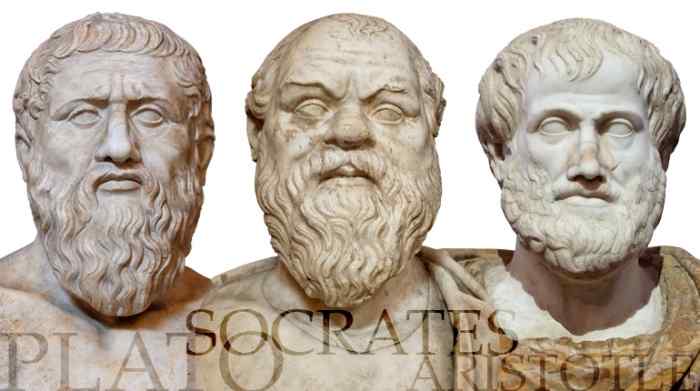
Rhetoric and philosophy may have begun every bit oppositional forces, equally we see expressed inside these dialogues by Plato, but post-obit Plato, rhetoric begins to become alloyed into philosophy. This assimilation begins with Aristotle, Plato'due south student, who describes rhetoric as "seeing the available modes of persuasion" as opposed to manipulation or situated within the aforementioned complex organisation of reincarnation (179). Yet Aristotle's assimilation of rhetoric into philosophy does not mean Aristotle treats the Sophists any better than his philosophical predecessors. Aristotle separates rhetoric from the Sophists by defining Rhetoricians in opposition to the Sophists (181). Whereas the Sophists are historically the original Rhetoricians, Aristotle strips the Sophists of their knowledge and declares them as masters of faculty without whatever moral purpose (181). Aristotle's rhetoric may principally concern itself with the means of persuasion, but information technology appears designed to also rewrite history in a grand act of possible philosophical trolling that denies the Sophists their contributions to rhetoric. Sophistry eventually evolved into a derogatory term and the Sophists themselves became lost to history because of Socrates, Plato, and Aristotle, until Hegel rediscovered them in the 19th century (Jarratt 4).
Whatsoever accusations of possible trolling seems to fade away from rhetoric following Aristotle's redefinition. Later the next major rhetorician, Cicero, alters the definition of rhetoric by dividing information technology into 5 canons: Invention, Arrangement, Style, Memory, and Delivery (Bizzell and Herzberg 3), the definition of rhetoric continued through a serial of revolutions, concerning itself with pedagogy and morality through Quintilian, Christian doctrine through Augustine, and courtly behavior through Castiglione. While rhetoric traditionally focuses upon concepts such as how an author/orator can successfully persuade an audience into supporting a given position, the rhetoric of trolling illustrates a situation wherein the author/orator is concerned principally with alienating/enraging an audience. Those authors/orators will exist referred to hither as within this context as trolls.
The Mythic Origins of Trolling
In the process of investigating the history of rhetoric, Socrates, Plato, and Aristotle all appear to exhibit behavior that adheres to the Urban Dictionary definition of trolling, quoted above, "the art of deliberately, cleverly, and secretly pissing people off… using dialogue." Withal, even if nosotros do decide that their behaviors towards the Sophists can be considered trollish behavior, this does not mean that trolls did not be prior to the menses that produced these Athenian Philosophers. Trolls of this variety be in myth- not as literal trolls, as these mythological figures are frequently easily out-duped, but every bit Tricksters.
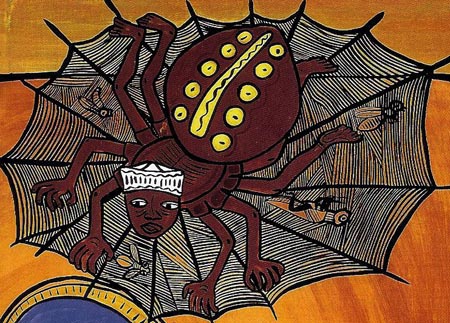
(Source)
A scattering of figures from globe mythologies, Hermes, Odysseus, Papa Legba, Coyote, Raven, Loki, Monkey, and Eshu all represent variations of the troll within the grapheme archetype of the Trickster. Each of these figures are involved within mythologies wherein they too "deliberately, cleverly, and secretly" use their words to deceive some other party for their own entertainment. Sometimes, equally appears to be case with our trio of philosophers, these Tricksters have their own political reasons for their individual acts of trolling, such as Hermes's desire to evade problem with Apollo, Papa Legba with his desire to get revenge on his mother, Loki with his disdain for the Aesir, or Monkey'due south demand to protect his subjects from the monster that is terrorizing them. Other times, as is the example with Odysseus in his famous run across with Polyphemus within Homer's Odyssey, survival rests upon the trickster'southward ability to troll and conceal i's identity through clever wordplay. A much more detailed analysis of these Tricksters appears within Lewis Hyde's Trickster Makes This World, albeit Hyde does not explicitly investigate inherent troll characteristics within the Trickster classic, nor does Hyde embrace all of these Tricksters equally.
Merely what is a Trickster? Are there whatever aspects of a Trickster that differs from a troll? Hyde writes,
In curt, the trickster is a boundary-crosser. Every group has its border, its sense of in and out, and trickster is always there, at the gates of the city and the gates of life, making certain there is commerce. He too attends the internal boundaries by which groups articulate their social life. We constantly distinguish right and wrong, sacred and profane, make clean and dingy, male and female, immature and old, living and expressionless- and in every case trickster will cantankerous the line and confuse the distinction. Trickster is the creative idiot, therefore, the wise fool, the gray-haired baby, the cantankerous-dresser, the speaker of sacred profanities. Where someone'south sense of honorable behavior has left him unable to act, trickster will appear to suggest amoral action, something correct/wrong that will give life going again. Trickster is the mythic embodiment of ambiguity and ambiguity, doubleness and duplicity, contradiction and paradox. (7)
A Trickster is subtle. A troll is frequently openly ambitious, though a rhetorically savvy troll, much like these Tricksters, tin can be subtle. A troll does not need to be noble or likable, only a Trickster figure usually is both noble and likable, even if the trollish Trickster uses charade to subvert norms and social gild. The alone exception hither amongst these trollish Tricksters is perhaps Loki. But this does not hateful that Loki has been treated unfairly over the course of history. His public image today may very well be a byproduct of well-placed trickery.

Christian author Snorri Sturluson, may have rewritten Loki in the procedure of creating his work, the prose Edda- a foundational text for our understandings of Norse mythology. Hyde writes, "there are really two eras of Norse mythology, and two Lokis, the Christian lens having turned Snorri'south Loki darker and more than demonic than the Loki who inhabits the earlier poems" (104). In this example, the fate of Loki parallels the fate of the Sophists. He is targeted by a writer whose ideology recasts him in a negative light.
As a result, Loki's dignity and likability become expelled from his identity. His character becomes rewritten. New mythologies become attributed to him, and a new figure takes the place of the old historic God. What is this new Loki just an avatar of Snorri sent to troll Asgardians for being Pagan Gods simply equally the Athenian Philosophers' depictions of the Sophists troll the actual Sophists for property antonymous behavior?
In an era before the internet, trolling could not occupy digital space, but it could occupy oral space and written space. Loki happens to exist an artifact from this written space of how trolling may be washed for a religious calendar. The depictions of the Sophists consequently are artifacts of political trolling within this same kind of written space. Through philosophy, nosotros may see the troll as a scrutinizer of politics. Through mythology, nosotros may run across the Trickster either equally a prototype of the troll figure or a specific kind of troll whose charisma and wit transforms the troll into an object of worship or emulation.
The Cyberspace Troll
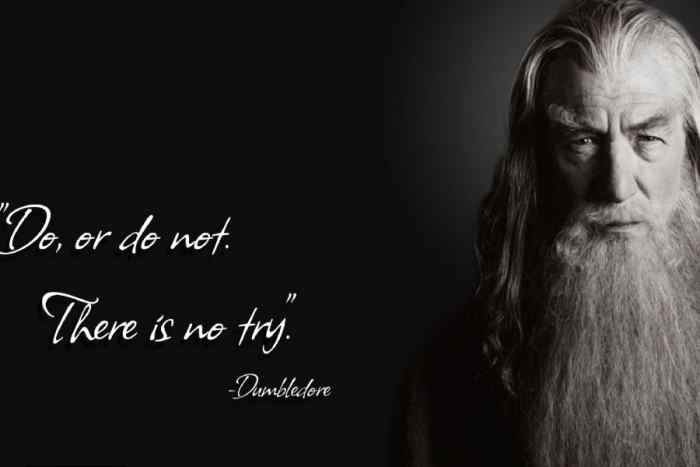
While some may endeavor to monolithize a troll's motivation at whatsoever point in history, making the case that a troll's only calendar is to notice entertainment at others' expense, I argue that this motivationcan be multifaceted. Such is the case with Socrates, Plato, Aristotle, the Tricksters, and Snorri Sturluson. It is this multifaceted series of motivations that is able to make these kinds of trolls into respectable figures worth idolizing.
Conversely, the internet troll, which often tin can accept a monolithized motivation, is usually less respectableunless the ideologies that troll is attacking are ane's an private does non concord with or subscribe to dogmatically. Even then, this does not unremarkably transform the troll into a culture hero. Instead it turns the troll into a jester figure who provides a momentary amusement and not much more.
This is not to say that Internet trolls cannot take multifaceted motivations. They tin can. An excellent example of this is James Veitch, who makes a solid hobby out of replying to scam emails in society to prevent scammers from taking advantage of less rhetorically savvy people.
Veitch is a troll who uses his rhetoric to attack the same time he uses it to defend a grouping of people. In this way, he is far more in line with Tricksters like Odysseus and Monkey than he is with Snorri Sturluson or Aristotle. He sends these emails for his own enjoyment, to exercise his wit, but he has a moral purpose informing his actions. Consider what Veitch says inside his TedTalk, "This is What Happens When You Reply to Spam Email."
Crazy stuff happens when you start replying to scam emails. It'southward really difficult, and I highly recommend we do information technology. I don't remember what I'g doing is mean. In that location are a lot of people who practise hateful things to scammers. All I'm doing is wasting their time. And I think whatsoever time they're spending with me is time they're not spending scamming vulnerable adults out of their savings, right? (Veitch)

This is a far weep from the somewhat selfish politics informing the possible trolling institute within the works of Plato, Socrates, and Aristotle. It is somewhat more in line with the kind of trolling we may acquaintance with Snorri Sturluson, just even then the morality that informs Veitch's actions here seems to exist founded within a more "universal" notion of justice that doesn't rewrite culture to convert others to his beliefs. Instead he uses humor equally both a weapon and equally a way of establishing a community.
Veitch crosses borders. He represents what a troll can exist. A troll needn't anger others for the sake of laughter alone. Veitch shows that a troll can accept multiple purposes informing their actions, and that by having multiple purposes, a troll can become, in a sense, a modern-day civilization hero similar the Tricksters Hyde studies. While that troll may not exist considered a hero by all members of a population, any troll has the capacity to see themselves as a hero. That capacity, like rhetoric itself, has a contingency for adept and evil.
The problematic nature of the internet troll is that all trolls may perceive themselves as being civilization heroes. Veitch may more easily exist called both a troll and a hero considering the agenda informing his trolling is apolitical. He does not seek to penalize others for subscribing to other ideologies than those he subscribes to. His principal business organization is only to outwit the scammers and to apply their rhetoric against them in a playful fashion.

Not all internet trolls with an agenda are playful like Veitch. In the advent of Donald Trump's presidential bid, a malevolent cyberspace troll presence has gained traction regarding what has since been called the Alt-Right Move. Using rhetoric that can be classified every bit sexist, racist, xenophobic, anti-Semitic, homophobic, transphobic, or other variations of discriminatory language, the Alt-Correct Trolls take pleasure in "triggering" liberal Internet users into side-stepping their positions and responding emotionally. Much like Socrates withinGorgias, the Alt-Right trolls use their victim's emotional outbursts to highlight what the Alt-Right perceives every bit hypocrisies undermining liberal arguments and/or to close downwards conversations that abet against conservative values by denying opposing views from presenting any form of logical argument. Information technology may non exist outrageous to suggest that ambitious trolls like those within the Alt-Right Move are analogous to the Athenian Philosophers. Clearly then, political trolling is not a new phenomenon, even if the digital spaces where this kind of trolling takes place are a fairly new to this kind of rhetorical art.
Digital spaces do, however, provide new opportunities for trolling that did non exist prior. Digital spaces requite trolls an power to maintain anonymity and a wider audition than they ever had admission before. The rhetoric of the troll is not a new invention, simply that rhetoric has changed as the mediums have changed. Whereas earlier forms of trolling relied on the power of words and necessitated that the troll take direct contact with a target audience, these digital spaces allow trolls to reach their audiences indirectly and to rely on the power of images and words.
The internet troll may, in fact, exist far more sophisticated than trolls are often perceived within popular culture. Their politics may occasionally be questionable, condemnable even, only internet trolls occupy a position alongside cultural borders that allow the residual of us to better understand our roles inside gild. Similar the Athenian Philosophers and the Tricksters, they bring ideologies into focus, into disharmonize. The cyberspace troll calls back to the mythological by of diverse global cultures and forces us to consider what kinds of time to come may lay ahead for us. Just equally important, if we do allow the internet trolls indicate the way ahead, we must consider, every bit the Sophists did, what other alternatives exist beyond the borders that trolls make readily apparent.
We tin, after all, troll a troll ourselves. Nosotros tin can use trolling to suppress an idea. But we tin can likewise employ trolling to suppress oppressive entities or find ways of using trolling equally a way to construct new ideas and noesis. The troll is a genre, a model for writing or oratory that utilizes rhetoric in a deceitful way to achieve self-related goals. Simply every bit writing may exist used to affirm a multifariousness of ethical and unethical positions, troll rhetoric too may occupy any position amongst a moral spectrum. The cyberspace troll but happens to demonstrate another infinite where this rhetoric may be applied.
Works Cited
Bizzell, Patricia and Bruce Herzberg.The Rhetorical Tradition: Readings From Classical Traditions to Present. 2nd ed. Bedford/St.Martin's, 2001.
Hyde, Lewis. Trickster Makes This Earth. Northward Point Press, 1999.
"Internet Troll."Wikipedia. https://en.wikipedia.org/wiki/Internet_troll. Accessed 24 January 2017.
Jarratt, Susan C.Rereading the Sophists: Classical Rhetoric Reconfigured. Southern Illinois University Printing, 1991.
Johnson, Paul.Socrates: A Human for Our Times. Penguin, 2011.
Plato, "Gorgias,"The Rhetorical Tradition: Readings From Classical Traditions to Nowadays.2d ed.,edited by Patricia Bizzell and Bruce Herzberg, Bedford/St.Martin'south, 2001, pp. 87-138.
—, "Phaedrus," The Rhetorical Tradition: Readings From Classical Traditions to Present. 2d ed., edited by Patricia Bizzell and Bruce Herzberg, Bedford/St.Martin'due south, 2001, pp. 138-168.
"Trolling."Oxford Living Lexicon. https://en.oxforddictionaries.com/definition/troll. Accessed 24 January 2017.
Veitch, James. "This is What Happens When You lot Reply to Spam E-mail." TED. January 2016. http://tinyurl.com/hfysdrz. Accessed 8 February 2017.
Zerotrousers, "Trolling"Urban Dictionary. http://www.urbandictionary.com/define.php?term=trolling&defid=4250942. Accessed 24 January 2017.
What do yous think? Get out a comment.
Receive our weekly newsletter:
0 Response to "The Art of Trolling Is Very Simple the First"
Post a Comment